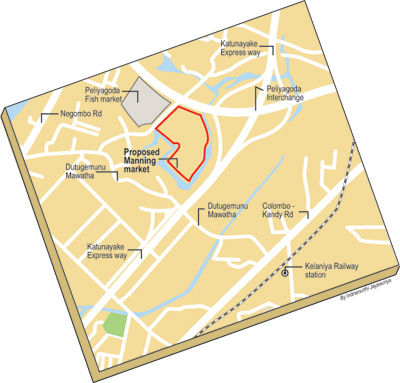News
As Manning Market is moved out, Pettah gets facelift

Manning market. Pix by Indika Handuwala
A multimodal transport hub will be set up at the Manning Market location once it is shifted to Peliyagoda, a senior official of the Urban Development Authority (UDA) said. Janak Ranaweera, UDA Deputy Director in charge of Planning told the Sunday Times that the modern transport hub would be the pivot to a project that would transform Pettah into a major IT and textile centre.
He said this would be done by relocating every other segment of the Pettah trade to Peliyagoda where a new mega market for retail and wholesale trade is being built in a 25-acre land.
He said the main reason for the relocation of the Manning Market, the city’s premier vegetable and fruit market, was the present road network surrounding the Pettah area which was not adequate to cope with the traffic inflow. “Transport was the main reason for the shift. At Peliyagoda which is already connected to the highway, we are planning to develop connecting roads with the central point being Kadawatte,” Mr. Ranaweera said.

Janak Ranaweera
Work at the Peliyagoda site has already begun with the land being filled and the construction proper would start in May, he said, adding that at present the UDA was carrying out a survey to work out the amount a trader would have to pay to obtain a stall.
“The new market will have a section for retail trade and it will be closer to the road while the wholesale section would be further in. It will also include banks, restaurants and a huge vehicle park,” Mr. Ranaweera said.
He said they had spoken to the traders to obtain their views and the complex would be built in keeping with their requirements.
Once the Manning Market is completely shifted, onion and potato traders at Fourth Cross Street and Fifth Cross Street would be relocated to Peliyagoda under phase two of the project. This will be followed by the relocation of other businesses that add to Pettah’s traffic woes.
Mr. Ranaweera said the current Manning Market, where some 3,000 daily wage earners work, lacked basic facilities and it was in such a poor condition that even public health inspectors were reluctant to go there for inspection.


